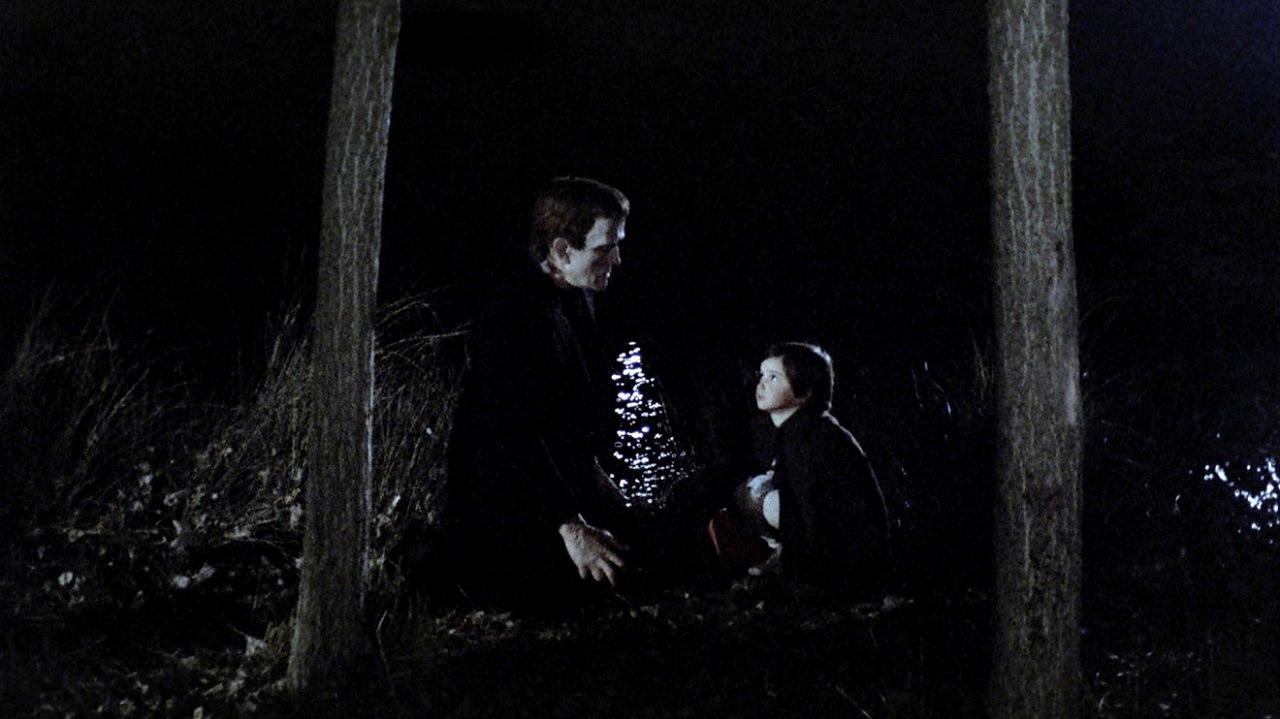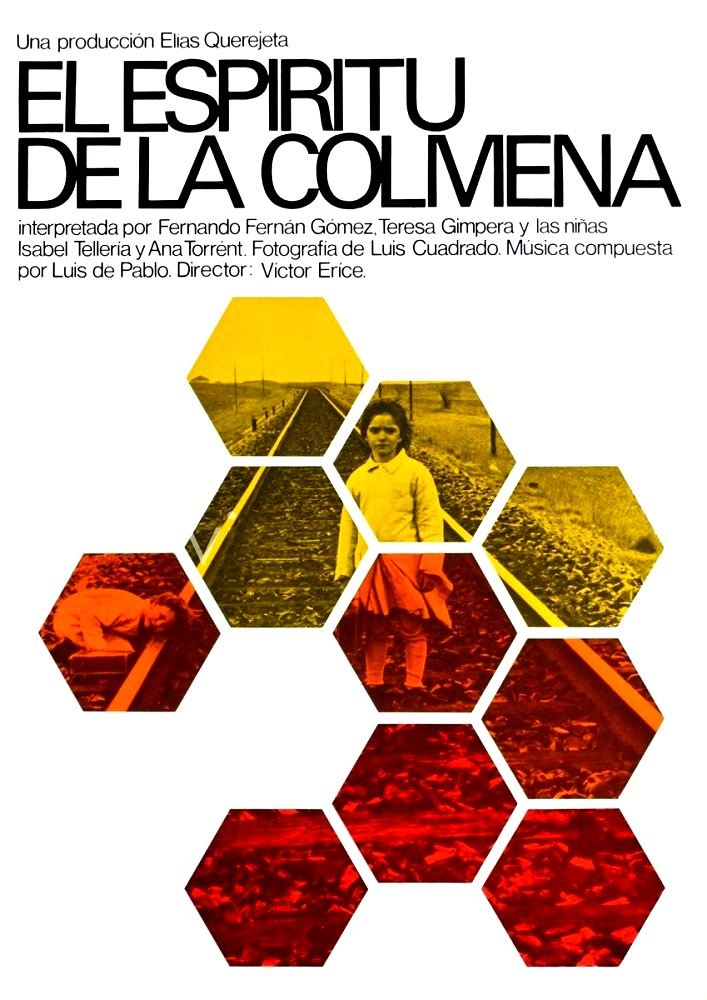(El Espiritu de la Colmena)
Spain. 1974.
Crew
Director – Victor Erice, Screenplay – Francisco J. Querejeta, Story – Victor Erice & Angel Fernandez Santos, Producer – Ellias Querejeta, Photography – Luis Cadrado, Music – Luis de Pablo, Art Direction – Adolfo Cofino. Production Company – Elias Querejeta Producciones Cinematograficas S.L
Cast
Ana Torrent (Ana), Isabel Telleria (Isabel), Fernan Gomez (Fernando), Tersea Gimpera (Teresa), Juan Margallo (Outlaw), Jose Villasante (Frankenstein Monster)
Plot
The village of Hoyuelos in the Castilla area of Spain in 1940. The village is visited by a travelling film show company that is screening the Boris Karloff ‘Frankenstein’. This is attended by young Ana and her sister Isabel. Later Ana asks Isabel if the monster was real and to shut her up Isabel tells her that cinema is make-believe and the monster is really a spirit. Ana befriends a deserting soldier that she finds hiding in a barn, thinking him to be the spirit of the monster. When her father confronts her about this, Ana runs away and becomes lost in the woods. There the spirit of theFrankenstein monster comes to help her.
The Spirit of the Beehive was the debut of the Spanish director Victor Erice. Were Erice’s output more prolific, he would almost certainly be greeted as one of the great continental directors. Alas, Erice’s only other works to date have been El Sur (1982), which, like The Spirit of the Beehive, circles around a deeply allegorical vision of childhood, Dream of Light (1992) about the artist Antonio Lopez Garcia, one of the segments of the anthology Ten Minutes Older: The Trumpet (2002), and the drama Close Your Eyes (2023). It is a far too sporadic output for a director with such an instinctive grasp of the medium.
The Spirit of the Beehive is often called an allegory for Spain under General Franco. One’s knowledge of Spanish history is too spotty to fully grasp the level of political allegory being wound here so I simply have to take the word of others on that one. Mostly though, The Spirit of the Beehive works as a striking trompe l’oeil about childhood imagination versus the wider perspective of the adult world. The child’s fanciful imagining of the monster from the Boris Karloff Frankenstein (1931) being a spirit is contrasted with the harsher reality of the wounded soldier in the barn with striking effect. It is a contrast where Erice sees both child and adult interpretations as sitting alongside one another and at the end even challenges us to disprove the child’s interpretation of what happened.
The film makes fascinating comparison to Bryan Forbes’ Whistle Down the Wind (1961) about children believing that an escaped murderer hiding in a barn is Jesus Christ returned. A number of similar contrasts can also be found in Guillermo Del Toro’s later fantasy Pan’s Labyrinth (2006).

What makes The Spirit of the Beehive work so beautifully is the way that Victor Erice gives it the free-form structure of a visual tone poem. There is no clear narrative and the meanings are obscure. More so though, Erice delights in the play of image – the lonely mother writing her letters to lovers who were killed during the Civil War; the metaphor of the bees trapped in their beehive and its wider implication to the house the family live in.
Victor Erice has a superb grasp of time and place. He evokes a world that seems to alienate the characters with its melancholy emptiness. They seem drowned in the emptiness of the bare landscape – interiors are shot with small patches of light surrounded in huge areas of shadow, and the exteriors – the broken adobe dwellings and barren vistas of dirty white fields – take on an awesome, almost physical quality in their sheer loneliness.
The Spirit of the Beehive is a film almost entirely without dialogue – and when it comes, it is at most conducted in whispers or lost in echoing cavernous rooms. The most striking sequence is the subplot about the discovery of the soldier, a set of tableaux that takes place entirely without words – Ana finding the soldier in the barn and bringing him food and the jacket containing her father’s watch; then a wide-angle of the field that cuts from Ana leaving the barn to it at night being lit up by the sudden flash and chatter of machine-gun fire; the scene then cutting to her father identifying the body at the town hall, puzzling over finding the fob watch and his accusatory production of the watch before Ana at the breakfast table, only for her to flee and run back to the ruins to find only a bloodstained rag. It is a story told entirely in images and cuts – the only word spoken is the father’s cry “Ana” as she runs out. This is masterful filmmaking.
Trailer here


